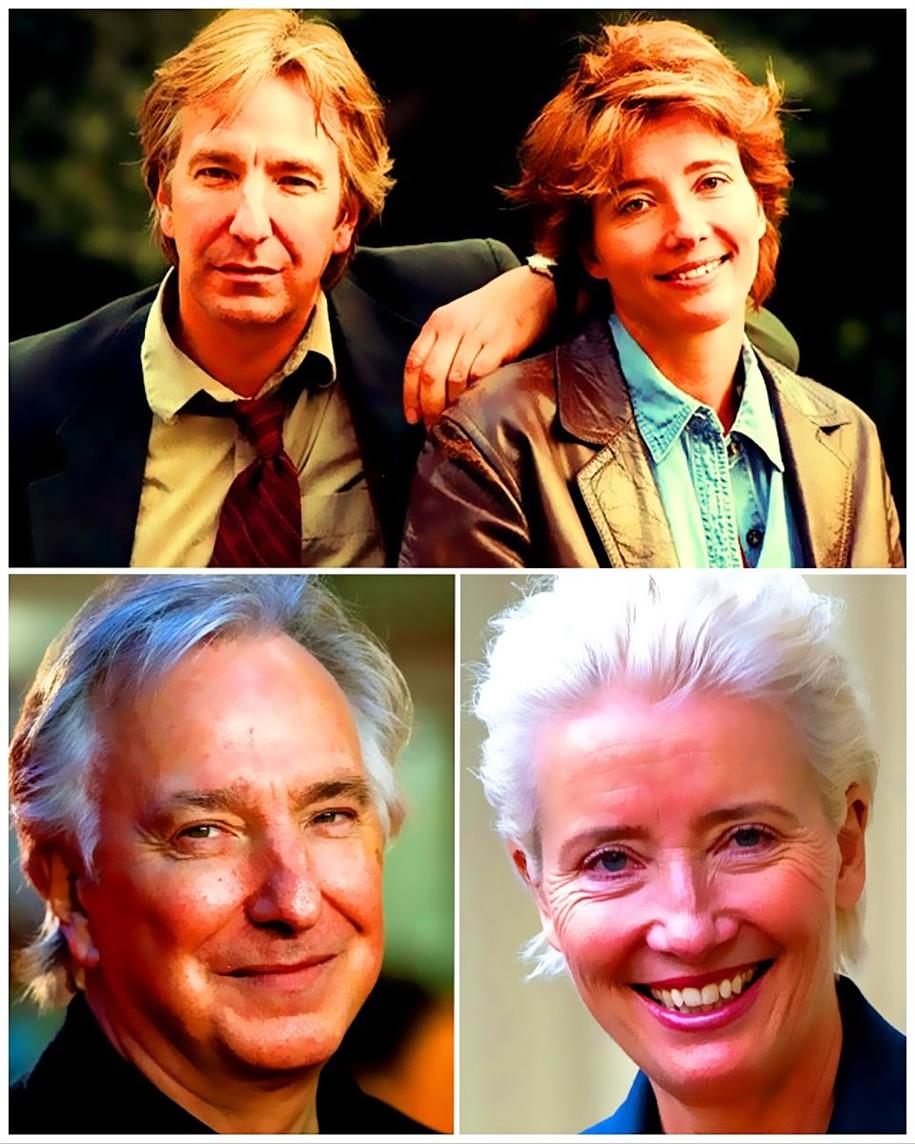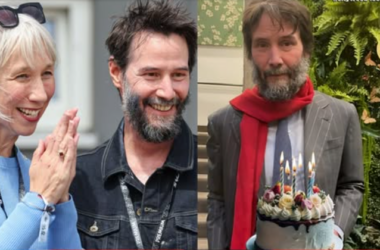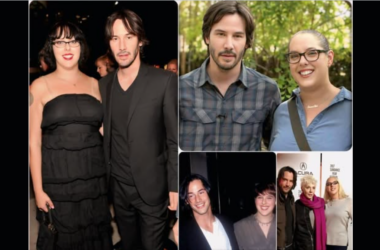
She found herself facing a man with a fierce gaze and a quietly commanding presence. He rarely smiled, and when he did, it was a flicker more than a flash. But behind the intense exterior was a man of remarkable tenderness and humor, and Thompson sensed it almost immediately. She later described the moment as “recognizing a fellow creature, one who felt deeply but rarely said as much.”
Their connection was built not on grand gestures, but on the accumulation of trust through years of creative intimacy. Their chemistry on screen in “Sense and Sensibility” (1995) stemmed from years of collaboration and mutual understanding that had been forged backstage and off-camera. On that set, Thompson was not only starring but also navigating the pressures of being the screenwriter. Rickman, who played the reserved and noble Colonel Brandon, offered more than performance. He offered quiet encouragement, subtle advice, and steadfast presence. In her words, “Alan had a way of being in the room that made you feel you belonged there too.”
What deepened their friendship was their shared belief in integrity, both in art and in life. Thompson recalled how during filming for “Love Actually” (2003), Rickman knew exactly how to portray Harry, a man making questionable choices, without slipping into caricature. They had long conversations about betrayal, forgiveness, and the quiet desperation that lives in long-term relationships. These weren’t theoretical debates. They were heartfelt exchanges drawn from the places they were both navigating in real life.
When Thompson’s marriage to Kenneth Branagh ended, it was Rickman who showed up with a bottle of wine and sat with her through the night, saying very little, asking even less. His silence wasn’t emptiness. It was safety. He offered no advice unless she asked. She didn’t need to be strong around him, and he didn’t demand she put on a brave face. Years later, she wrote him a letter saying, “You saved me without trying. And that’s the kind of love I trust most.”
Their bond was unshakeable even when Rickman kept the secret of his illness. For a long time, he chose to tell very few people. Thompson, however, knew something was wrong before he said a word. She noticed the way he tired more easily, how he grew quieter, more introspective. One afternoon during the filming of a charity short, he told her. They stood in silence for several moments. She said only, “Alright. Then we walk through this together.”
Their conversations in those last years were more vulnerable, more open than ever before. Rickman, known for his guardedness, began to share memories, regrets, and hopes with Thompson. She told him she had loved him from the beginning, though they had never crossed the lines of friendship. He laughed, saying, “You would’ve ruined me.” She replied, “No, Alan. I would’ve healed you.”
When Rickman passed away in 2016, Thompson released a letter that revealed the emotional depth of their friendship. She called him “the finest of actors and directors” but more importantly “the truest of friends.” Their bond had never been about celebrity, or performance, or image. It had been real, raw, and sacred. She kept one of his handwritten notes tucked inside her wallet: “Always speak the truth. It costs less.”
Their friendship was never loud, never theatrical. It was a story written in glances, in trust, in silence, in the knowledge that some people come into your life not to dazzle you, but to hold a steady light. Emma Thompson still visits his favorite corner table at their favorite café, orders two teas, and talks to him like he’s still listening.




